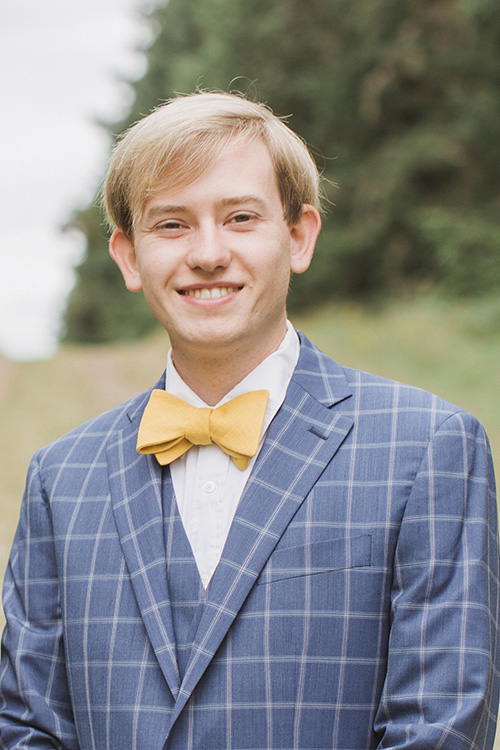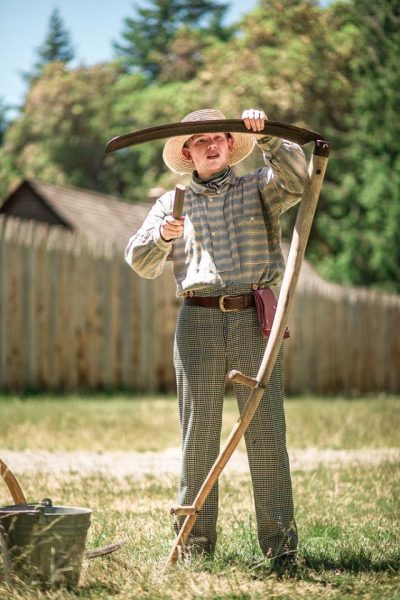
Josiah Pollock is a second-semester MA student.
Tell us about yourself. Where are you from? How did you get here?
I am from the rainy western portion of Washington State, 45 minutes south of Seattle–if traffic did not exist. Since high school I wanted to study agricultural history and tailored my undergrad at the University of Washington toward agricultural topics. Local history has always been my focus so coming to Iowa State to study Pacific Northwest agriculture is quite random. Iowa State was the only university I found in the nation which had a graduate program in agricultural history. Prior to starting my undergrad I was hired by Fort Nisqually Living History Museum as a historical interpreter. I had volunteered at the fort since a child of six. The job opportunity allowed me to stay local and research local topics. The museum was beginning to embrace its agricultural story which fed my desire to study agricultural history. After completing my degree, I continued to work for the museum until it became obvious that my career in the museum field would become stagnant without a graduate degree. I decided now would be the perfect opportunity to get a degree in agricultural history which is how I am here.

What questions do you want to pursue while you’re at Iowa State?
I research the little known agricultural arm of the Hudson’s Bay Company, The Puget Sound Agricultural Company (PSAC). They farmed close to 300,000 acres in Washington and British Columbia on Vancouver Island. In the past, I have only narrowly looked at the company between the years 1840-1860, primarily focused on the year 1855. I hope to expand the date range into the 1930s when the company dissolved. I’m particularly interested in the advanced farming techniques and agricultural practices utilized by the company, agricultural practices the United States would not impose for decades. Why the scientific advancement of agriculture was taking place in the remotest parts of the west in the middle 19th century has always intrigued me, especially since Ireland was struggling under extreme famine and England was suffering devastating crop failures. I’m also interested in crop rotation, primarily the relation between crop rotation as agricultural science and indigenous and Hawaiian cultural practice.
What do you want to do with your degree?
I would love to return to the museum field, while working in higher education. Directing an agricultural museum as a fully functioning farm would be the ultimate goal with the opportunity to teach at a university.
Anything else you’d like us to know?
I enjoy lecturing and have given multiple lectures on the PSAC to museums, historical societies, and university classes. The highlight of my research to this point in my career was curating Commerce on the Cowlitz: Trade, Transportation, and Territorial Transition. This exhibit detailed the unique role agriculture and the PSAC played in creating the modern routes of transportation utilized in western Washington State. In my undergrad I was selected for the Mary Gates Research Scholarship and traveled to the Royal British Columbia Archives. I am very interested in cross border research and in my area of expertise it is imperative in gathering the full story. My passion is understanding an era to its fullest. This includes understanding the lifeways of the people in the region down to the mundane minutia. Food history, technology, clothing, I find this level of detail extremely important in order to understand the bigger picture. I have enjoyed co-writing articles on PSAC food and fashion and hope to continue including these topics in my future work.